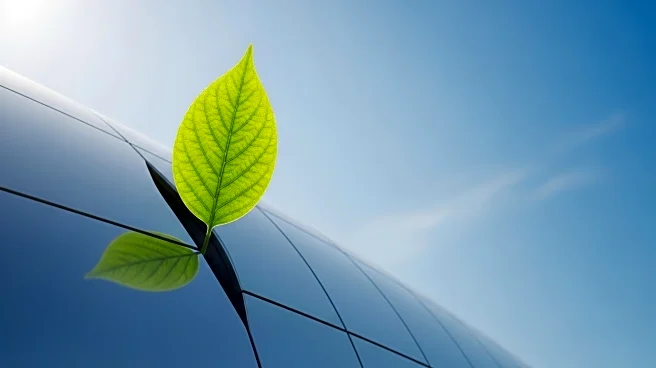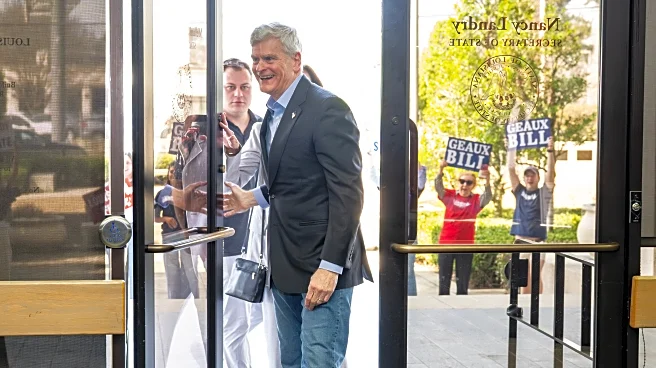What's Happening?
Simon Stiell, the UN climate chief, has expressed optimism about the global shift towards a green economy, citing China's success as an example. Ahead of a crucial summit in New York, Stiell emphasized the need for countries to reset their economies to benefit from low-carbon growth. Despite acknowledging that many nations, including the US, Russia, and Saudi Arabia, may not meet the Paris Agreement commitments, he believes the transition to a low-carbon economy is showing progress. The UN is urging countries to submit their national plans, known as nationally determined contributions (NDCs), to limit global temperature rises to 1.5C above preindustrial levels. The deadline for these plans has been extended to the end of the month, with the UN set to assess their adequacy.
Why It's Important?
The push for a green transition is crucial as it promises significant economic dividends for countries that embrace it. The shift towards renewable energy and low-carbon industries is expected to generate substantial investments and profits, as demonstrated by China's booming green economy. However, the failure to meet climate commitments could have dire consequences, including increased costs of living and uninsurable properties due to extreme weather. The economic benefits of climate action, such as job creation and improved food and water security, are significant, and countries ignoring these opportunities risk severe economic repercussions.
What's Next?
The upcoming Cop30 climate summit in Brazil will be a pivotal moment for countries to address the shortcomings in their climate plans and invest in green economic transformation. The UN aims to shift the narrative from dire warnings to showcasing the economic benefits of climate action. Countries are beginning to recognize the costs of inaction, with climate damage already costing billions annually. The summit will focus on bending the curve towards the 1.5C target, even if current commitments fall short.
Beyond the Headlines
The broader implications of the green transition include a shift in global economic dynamics, with countries investing heavily in renewable energy and low-carbon industries. The transition also highlights the interconnectedness of climate action and economic development, emphasizing the need for comprehensive strategies that address both environmental and economic challenges.











